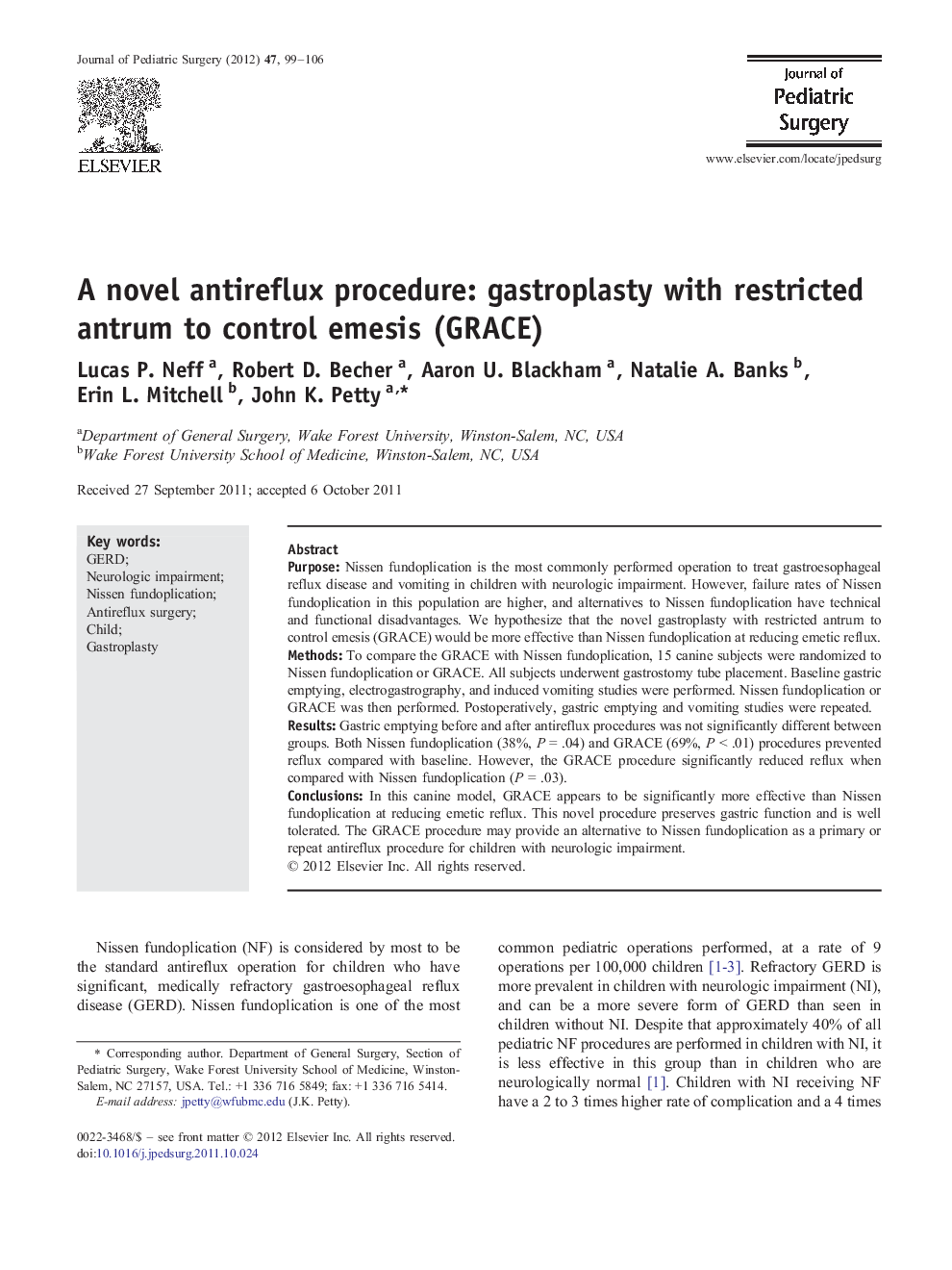| Article ID | Journal | Published Year | Pages | File Type |
|---|---|---|---|---|
| 4156751 | Journal of Pediatric Surgery | 2012 | 8 Pages |
PurposeNissen fundoplication is the most commonly performed operation to treat gastroesophageal reflux disease and vomiting in children with neurologic impairment. However, failure rates of Nissen fundoplication in this population are higher, and alternatives to Nissen fundoplication have technical and functional disadvantages. We hypothesize that the novel gastroplasty with restricted antrum to control emesis (GRACE) would be more effective than Nissen fundoplication at reducing emetic reflux.MethodsTo compare the GRACE with Nissen fundoplication, 15 canine subjects were randomized to Nissen fundoplication or GRACE. All subjects underwent gastrostomy tube placement. Baseline gastric emptying, electrogastrography, and induced vomiting studies were performed. Nissen fundoplication or GRACE was then performed. Postoperatively, gastric emptying and vomiting studies were repeated.ResultsGastric emptying before and after antireflux procedures was not significantly different between groups. Both Nissen fundoplication (38%, P = .04) and GRACE (69%, P < .01) procedures prevented reflux compared with baseline. However, the GRACE procedure significantly reduced reflux when compared with Nissen fundoplication (P = .03).ConclusionsIn this canine model, GRACE appears to be significantly more effective than Nissen fundoplication at reducing emetic reflux. This novel procedure preserves gastric function and is well tolerated. The GRACE procedure may provide an alternative to Nissen fundoplication as a primary or repeat antireflux procedure for children with neurologic impairment.
